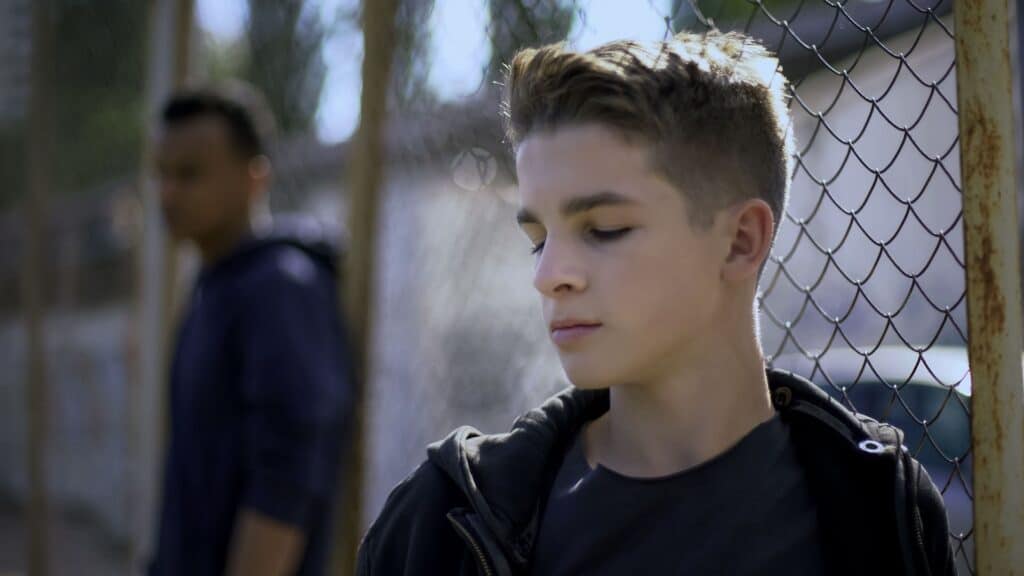What Parents Need To Know If Their Child Is Charged With a Juvenile Crime
Most Colorado parents raise their children without them facing charges for a juvenile crime. However, all kids make mistakes or have lapses in judgment, and it can be easy as a teen to get caught in the wrong place at the wrong time. Sometimes, these missteps and misfortunes involve breaking the law, even unintentionally.
When that panicky call comes from your child, or a Colorado Springs police officer advises you that they have detained your child for committing a crime, it can be shocking and scary. Most parents are unfamiliar with the mechanics of Colorado’s juvenile justice system.
Not knowing what to expect can send parents scrambling for answers as they try to figure out the best way to help their child through the ordeal of fighting juvenile crime charges.
What You’ll Learn in This Post
- Since children’s and teen’s brains, judgment, and decision-making skills are still developing, Colorado law treats juvenile crimes differently than those involving adults.
- While a juvenile will face consequences if convicted, the sentence usually focuses on rehabilitation rather than punishment. It is more likely to involve diversion programs, probation, restitution, and community service than incarceration.
- A juvenile conviction will lead to a criminal record that can burden the person long into adulthood. Still, Colorado allows for expunging juvenile criminal records upon request in many circumstances.
Table of Contents:
What Parents Need to Know if Their Child is Charged With a Juvenile Crime
What You’ll Learn In This Post
First Things First – Call an Experienced Juvenile Crimes Attorney
Common Misconceptions About Juvenile Crime
Harsh Punishment Awaits Your Child
Juvenile Detention Facilities Can Be As Brutal As Adult Prisons
Your Child Will Have a Criminal Record That Will Impact the Rest of Their Lives
When Your Child’s Future Is On The Line, You Need Expert Representation

First Things First – Call an Experienced Juvenile Crimes Attorney
If your child has been arrested, the first thing you need to do is contact an experienced Colorado Springs juvenile crimes defense attorney. They can provide you with information and guidance and will immediately get to work protecting your child and their rights.
Your child’s attorney will also give you peace of mind by clearing up many misconceptions about juvenile crime and juvenile justice in Colorado Springs. Often, these misconceptions are far worse than the reality of your child’s situation.
But that doesn’t mean you and your child should take juvenile crimes lightly. These are serious matters, and failure to treat them as such can lead to avoidable consequences that make the experience more traumatic for your child and more damaging for their future.
Must Read: My Child Was Charged With a Crime
Common Misconceptions About Juvenile Crime
That said, here are three common misconceptions that parents have about juvenile crime and the juvenile justice system in Colorado Springs and the realities facing your child:
Harsh Punishment Awaits Your Child
When an adult is convicted of a crime in Colorado Springs, the sentences and penalties handed down – jail time, hefty fines, and the loss of rights – are designed to be punitive. The juvenile justice system, however, focuses on rehabilitation and deterrence.
Colorado law recognizes that the minds of juveniles are still developing, and they may lack the judgment and decision-making skills of most adults. And, as noted, minors are simply more prone to make mistakes.
Given these factors, as well as the fact that juveniles have yet to join adult society, the goal of the juvenile justice system is to address the behaviors or other issues that led to the child’s actions so that they learn from their experience and are more likely to make better choices in the future.
Accordingly, many sentences imposed on youth offenders involve probation, community service, fines and restitution, out-of-home placement, participation in rehabilitation and treatment programs, curfews, and other restrictions.
These consequences are designed to reinforce to the minor the seriousness of their actions while also getting them back on track so they can move forward with their lives.
However, not all juvenile crimes are created equal. A child charged with shoplifting a jacket will usually not face the same consequences as one charged with sexual assault or murder. The more serious the juvenile offense, the more likely the child will face harsh consequences upon conviction, including remand to the Colorado Department of Human Services Division of Youth Services for placement in a juvenile detention facility for a time set forth by the judge.
However, in the most extreme cases, typically involving a violent crime, a juvenile can be tried as an adult.

Juvenile Detention Facilities Can Be As Brutal As Adult Prisons
If your child does face a sentence in one of Colorado’s eight juvenile detention facilities, you may picture a place that is as harsh, brutal, or dangerous as adult prisons are perceived to be.
While there have been instances of problematic conditions within some facilities, most juvenile detention centers prioritize educational and therapeutic services.
The administrators and staff at these facilities, including Zebulon Pike Youth Services Center in Colorado Springs, understand the purposes of juvenile detention and work to create an environment that fosters positive behavioral change and personal growth.
Your Child Will Have a Criminal Record That Will Impact The Rest of Their Lives
One of the most significant long-term consequences of a juvenile conviction, and the one that most parents are the most concerned about, is having a criminal record that will follow their child for the rest of their lives. Just as it does for an adult, a criminal record for a juvenile can limit their employment, education, and financial opportunities and be a stain on their reputation for years after they committed the offense or served their sentence.
Contrary to what many people believe, the criminal justice system does not automatically seal or expunge juvenile records when a child turns 18. The good news, though, is that Colorado allows most people convicted of juvenile offenses (or their parents or guardians) to later petition the court to have their criminal record expunged. However, for anyone unfamiliar with the process, the timing and content of such petitions can be complicated.
An expungement can be crucial to a minor’s future, but there is no guarantee that an El Paso County judge will grant the request. For these reasons, we highly recommend hiring an experienced Colorado Springs criminal defense lawyer when preparing and filing a petition for assistance and support.
Related: What You Need To Know About Court-Appointed Public Defenders
Term Explained: “Expungement” means that a criminal record is considered as never having existed, and the public will not be able to see it. An individual with an expunged juvenile record may lawfully deny that they were never arrested, charged, adjudicated, convicted, or sentenced regarding the expunged matter.

When Your Child’s Future Is On The Line, You Need Expert Representation
No matter what category and no matter what the crime, an arrest and conviction for a juvenile offense in Colorado Springs can have serious and long-term implications for a child’s future.
If your child is in trouble with the law, contact the experienced Colorado Springs juvenile defense attorneys at James Newby Law.
As former prosecutors and as parents ourselves, we have the compassion, experience and skill to communicate with judges, prosecutors, and others to keep the focus on preserving your child’s future, not punishing them for the mistakes of youth.

